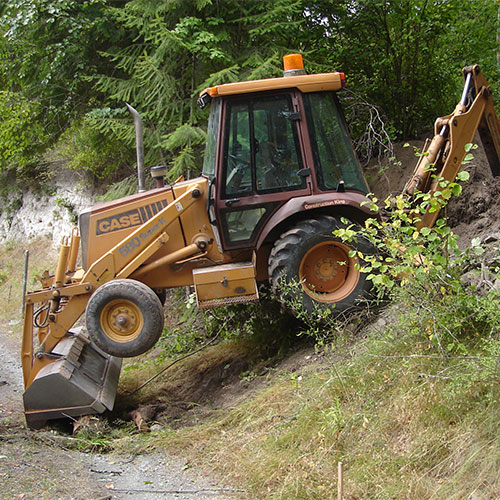Finest Dump Truck Companies in Ohio - Top-Rated Dump Truck Providers
Finest Dump Truck Companies in Ohio - Top-Rated Dump Truck Providers
Blog Article
Comprehensive Excavation Methods: Mastering the Fundamentals for Success
The mindful planning, accurate execution, and precise attention to information required in excavation projects require a comprehensive approach that encompasses different fundamental aspects. The real proficiency exists not just in recognizing these basics however in seamlessly integrating them to navigate the intricacies of excavation tasks with finesse.
Recognizing Excavation Task Preparation

Successful excavation projects are constructed on the structure of precise and thorough preparation. The preliminary stage of any type of excavation project is the drawing board, where crucial choices are made that can substantially impact the end result of the job. During this phase, it is important to collect all appropriate info concerning the site, including topographical studies, soil structure, and any prospective hazards that may exist. Understanding the task timeline, budget, and range restrictions is important for developing a comprehensive excavation plan that makes sure the task's success.
One trick aspect of excavation task planning is the advancement of a detailed timeline that details the sequence of milestones, activities, and due dates. By carefully considering all these elements during the preparation stage, excavation jobs can be performed successfully and effectively, leading to effective results - dump truck companies in ohio.
Soil Analysis and Site Assessment
Performing comprehensive soil evaluation and site analysis is an essential step in the prep work phase of any type of excavation task. Dirt evaluation involves figuring out the composition, framework, and residential properties of the soil at the excavation site. This information is important for understanding the soil's bearing capability, dampness web content, and potential for erosion, which are crucial variables in determining the excavation methods and tools needed for the project.
Site assessment surpasses soil evaluation and encompasses a broader assessment of the overall site problems. This examination consists of determining any kind of possible risks, such as below ground utilities, ecological issues, or unsteady terrain, that could impact the excavation procedure. By extensively examining the site, task managers can develop effective excavation strategies that focus on safety and security, effectiveness, and environmental management.
Making use of sophisticated modern technologies like ground-penetrating radar, dirt tasting, and drone surveys can enhance the accuracy and effectiveness of soil evaluation and website examination. Investing time and sources in these preliminary actions can inevitably save time and stop pricey hold-ups or issues during the excavation process.
Devices Selection and Utilization
Reliable excavation jobs count greatly on calculated equipment option and use to guarantee optimum performance and productivity. Choosing the appropriate devices for the task is crucial in making best use of performance and reducing downtime. Variables such as the kind of soil, depth of excavation, and job scope play a substantial duty in figuring out one of the most suitable devices for the task available.

In addition to selecting the ideal tools, proper utilization is essential to project success. Operators has to be educated to take care of the tools safely and efficiently - dump truck companies in ohio. Normal upkeep checks and timely fixings help stop failures and guarantee regular efficiency throughout the job
Security Procedures and Rules Conformity
In the realm of excavation projects, prioritizing precaution and compliance with policies is extremely important to ensuring a secure and legally sound operational setting. Precaution include a variety of methods, consisting of conducting extensive site evaluations, applying proper signage and barriers, and providing adequate safety and security training for all workers involved in the excavation procedure. Adherence to regulations, such as OSHA demands in the USA, makes sure that the excavation project fulfills the needed requirements to safeguard workers, bystanders, and the surrounding environment.

Monitoring Development and Adjusting Methods
Exactly how can project supervisors successfully track the development of excavation projects and adapt their approaches accordingly to enhance outcomes? Surveillance development is vital for guaranteeing that excavation projects stay on track and fulfill due dates. Project supervisors can use different tools and strategies to track development, such as daily report card, normal site inspections, and progressed monitoring innovations like drones and GPS tracking systems. By continuously monitoring the job's development, supervisors can determine any possible delays or problems early on and take positive steps to resolve them.

Verdict
Finally, understanding the basics of thorough excavation techniques is crucial for the success of any kind of task. By comprehending project preparation, assessing dirt and site problems, choosing appropriate tools, adhering to security regulations, and monitoring development, project supervisors can make certain a efficient and smooth excavation procedure. Executing these approaches will lead to effective end results and reduce possible risks or problems throughout the excavation project.
The initial phase of any excavation click to read more job is the preparation stage, where vital choices are made that can considerably impact the result of the task. Understanding the job timeline, spending plan, and range constraints is critical for producing a thorough excavation plan that guarantees the task's success.
Just how can project supervisors efficiently track the innovation of excavation projects and adapt their methods as necessary to optimize results? By carefully monitoring progress and being prepared to adapt methods, task supervisors can boost the overall success of excavation projects.
By understanding see this job preparation, analyzing soil and site problems, selecting appropriate tools, complying with safety regulations, and keeping track of development, task supervisors can make certain a reliable and smooth excavation procedure.
Report this page